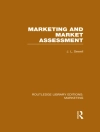In the 1990s, large insurance companies failed in virtually every major market, prompting a fierce and ongoing debate about how to better protect policyholders. Drawing lessons from the failures of four insurance companies, When Insurers Go Bust dramatically advances this debate by arguing that the current approach to insurance regulation should be replaced with mechanisms that replicate the governance of non-financial firms.
Rather than immediately addressing the minutiae of supervision, Guillaume Plantin and Jean-Charles Rochet first identify a fundamental economic rationale for supervising the solvency of insurance companies: policyholders are the ‘bankers’ of insurance companies. But because policyholders are too dispersed to effectively monitor insurers, it might be efficient to delegate monitoring to an institution–a prudential authority. Applying recent developments in corporate finance theory and the economic theory of organizations, the authors describe in practical terms how such authorities could be created and given the incentives to behave exactly like bankers behave toward borrowers, as ‘tough’ claimholders.
关于作者
Guillaume Plantin is Assistant Professor of Finance at London Business School. He is the coauthor of
Théorie du Risque et Réassurance.
Jean-Charles Rochet is Professor of Mathematics and Economics at the University of Toulouse and a visiting professor of finance at the London School of Economics and Political Science. He is the coauthor of
Microeconomics of Banking.












